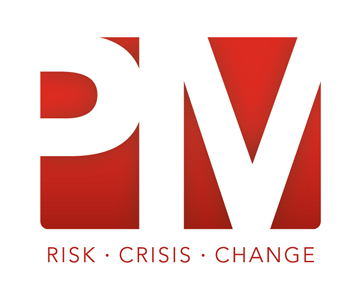Science that impacts our practice
Research has always taken a central position in what we do. The past decade, our drive to translate scientific knowledge into practical solutions lead to the development of: the Crisis Communication Work Process, the Crisis Preparedness Scan, the Normal Chaos Catalytic Framework, the Resilience Scan and many more methods and tools.
Early 2021 PM’s full fledged research division became operational, coordinated by our senior partner Hugo Marynissen. The focus of our current research is on:
- team dynamics in crisis teams,
- safety leadership within so-called “High-Reliability Organisations”, and
- the role of crisis governance as a way to anticipate extreme events.
Find an overview of our main research oriented projects below.
Currently ongoing:
Successfully finished:

Integration with service offering: practitioner translation and adoption
- The results of PM’s extensive research activities have been translated into several books and a range of practitioner publications for the crisis professional.
- Research products and new knowledge continuously feed into the PM Academy and other forms of training offered.
- Evidence based research forms the fundaments of our consulting services.
- Possibilities to contribute to projects and help identify real world research problems are proposed to clients. Such projects undertaken in partnership can result in scientifically grounded recommendations for specific challenges.
For more in depth information, don’t hesitate to contact us or consult our complete scientific publications repository.
Current projects

University of Antwerp & Port of Antwerp
Integrated risk and crisis governance of critical infrastructures: An analysis of the safety network in the Port of Antwerp.

COVID-19 Approach in Belgium
PM is expert in the Special Parliamentary Committee that examined the COVID-19 Approach in Belgium. The objective: analyze, appreciate, learn and recommend alleys for future improvement to the members of this Special Parliamentary Committee. No doubt that these insights will help PM to advice and train clients in an even more effective way.

Resilience – Developing a new business line
Thanks to VLAIO, the Flemish Agency for Innovation and Enterprise, we are working on a new business line for consultancy and training in the field of Organizational Resilience. It is based on research packages including case studies, literature review, Delphi panels, and a testing and development phase.
Key academic references of PM’s R&D division (2011-2021)
- Van den Oord, S., Vanlaer, N., Marynissen, H., Brugghemans, B., Van Roey, J., Albers, S., Cambré, B., Kenis, P. (2020). Network of Networks: Preliminary Lessons from the Antwerp Port Authority on Crisis Management and Network Governance to Deal with the COVID-19 Pandemic, Public Administration Review, 80(5), 880–894.
- Marynissen, H., Lauder, M. (2020). Stakeholder-focused communication strategy during crisis. A case study based on the Brussels terror attacks. International Journal of Business Communication, 57(2), 176–193.
- Lauder, M. A., Marynissen, H. (2018). Normal chaos: a new research paradigm for understanding practice. Journal of Contingencies and Crisis Management, 26: 319–323.
- Marynissen, H., Pieters, S., Mertens, P., Ramacker, B., Brugghemans, B. (2015). Het Werkproces Crisiscommunicatie. Naar een verdere professionalisering van de communicatiediscipline. In: Devroe et al. (Eds.) Zicht op first responders. Handboek bij het beheer van evenementen en noodsituaties in Nederland en België. Maklu, Antwerpen – Apeldoorn (pp. 267-288).
- Brugghemans, B., Marynissen, H. (2013). The process of decision-making in a fast burning crisis situation: A multiple sequence approach of decisiveness. International Fire Service Journal of Leadership and Management, 7, 41-50.
- Marynissen, H. (2011). The relationship between organisational communication and perception. Acta Chirurgicum Belgica, 11(4), 193-199.
Finished projects
Normal Chaos: a new research paradigm for understanding practice (2018)
Our key point is this: if practitioners always have to work in imperfect ways with imperfect tools, with imperfect understanding using imperfect information and within imperfect systems where the degree of control available is limited, how do they cope, managerially (i.e., “deal effectively”) with the issues before them? As researchers, we believe the answer to that question is not known and, accordingly, we recommend a new research paradigm for understanding practice more generally. We call that paradigm normal chaos.
Lauder, M. A., Marynissen, H. (2018). Normal chaos: a new research paradigm for understanding practice. Journal of Contingencies and Crisis Management, 26: 319–323.
Stakeholder-focused communication strategy during crisis. A case study based on the Brussels terror attacks.
This research looks to communication practices as a way of dealing with people feeling distress during a crisis. The prevailing crisis communication literature suggests the prime objective should be to safeguard the sender’s reputation thereby preventing the loss of trust. In our work, we inverted that logic by introducing a crisis communication strategy that focuses on restoring trust by diminishing victims’ and other stakeholders’ stress levels. Based on a case, the Brussels terror attacks (March, 2016), we proved the effectiveness of this approach and the diminishing effect on the population’s stress levels.
Marynissen, H., Lauder, M. (2020). Stakeholder-focused communication strategy during crisis. A case study based on the Brussels terror attacks. International Journal of Business Communication, 57(2), 176–193.
The Crisis Communication Work Process. Towards further professionalisation of the communication discipline.
This article sets out a clear vision of a work process that can be used to communicate quickly and adequately during crises. It is a blueprint that can be applied both within the communication discipline and by communicators at other (government) companies and organisations. This Crisis Communication Work Process (CCWP) was developed based on years of observation during and evaluation of real and simulated crisis interventions. On the other hand, it is underpinned by numerous scientific insights provided by recent research. In this way, the authors hope further professionalise the domain of crisis communication in Belgium and the Netherlands.
Marynissen, H., Pieters, S., Mertens, P., Ramacker, B., Brugghemans, B. (2015). Het Werkproces Crisiscommunicatie. Naar een verdere professionalisering van de communicatiediscipline. In: Devroe et al. (Eds.) Zicht op first responders. Handboek bij het beheer van evenementen en noodsituaties in Nederland en België. Maklu, Antwerpen – Apeldoorn (pp. 267-288).